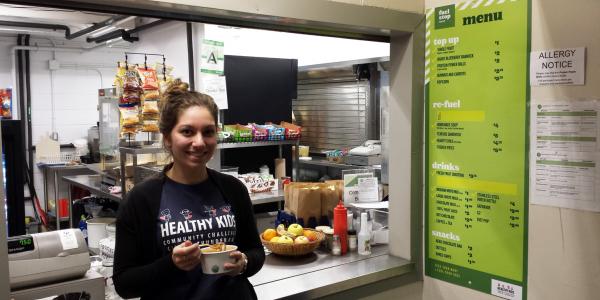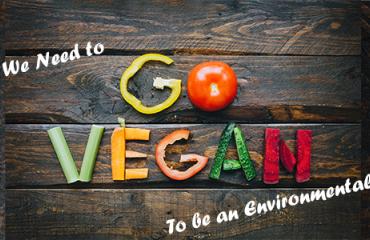
I like hotdogs – they're tasty.
Poutine? Even better.
Hotdogs and poutine together? Stop. The. Train.
So why on earth would I be part of promoting a canteen menu that takes away two of the classic canteen menu items at the Delaney Arena[1]? This sounds like treachery. Unfair and un-Canadian even. Why would I support this?
Because I want kids in our communities to have real choices.
Wait, what? How does taking away choices give people choice? That just sounds like some nanny-state propaganda. I know, I know, this can sound ridiculous, but bear with me for a moment.
Let’s do a little thought experiment. Imagine you finish work late and are rushing home to pick up your child for a sports practice. You don’t have time (not to mention energy) to cook and you decide to pick something up for dinner. What are the top 5 options you can think of? (Really, try thinking about it)
How about top 10?
Okay, now how do those top 10 options compare to a good home-cooked meal? I’m sure you can see my point by now: there are very few healthy options; not to mention reasonably priced ones. Now, I know this doesn't happen all the time and certainly a fast food meal once in a while can still be part of an overall healthy lifestyle, but if we take a closer look at the types of convenient foods available to us, we’re hard-pressed to find something that really nourishes us. We live in a ‘food environment’ that calls out to us every day to eat highly processed foods and it often feels like we don’t really have any other choices. Did you know that the average Canadian child sees 14 food and beverage ads a day? 90% of these ads are for foods with little nutritional value[2]. How many times a day do kids get to hear that veggies and fruits are cool too? … Exactly. I’m a little – okay, actually very – concerned about what this means for children in our community.
This is especially concerning because we know that more and more Canadians are eating out and purchasing pre-made foods instead of eating home-cooked meals. In fact, processed foods now make up 60% of family food purchases: that’s double what it was 70 years ago[3]. Given our fast-paced lifestyles, these changes are understandable. However, the message that is being sent to children in our current food environment is that highly processed foods are ‘normal foods’. This message is stronger than ever because of intense food and beverage marketing campaigns and the fact that convenience foods have become a staple as a result of our fast-paced lifestyles.
Discovering these facts left me with a question:
Is there anything we can do to change the food environment so that kids in our community have a fair chance to access nutritious foods?
Enter the Fuel Stop canteen at Delaney. This 3 month pilot project was developed as a small attempt to shift the food culture at canteens. There is a unique opportunity for municipal recreation centers to promote health through physical activity and by providing a nourishing whole foods menu. In fact, canteens could be real-life classrooms that teach kids about balanced meals and provide opportunities for quick meals that fuel their physical activity to the max. It is definitely a big shift in how we see canteens, but I think it’ll be worth it.
At the end of the day, I recognize that the classic canteen foods are missed by many (including me!). But if we look beyond the canteen menu and to the broader ‘food environment’ (places where food is sold) we realize that, heck, finding good food when we need a quick bite is really difficult. So, do I like hotdogs? You bet. Poutine? Even better. But do I think giving them up is worth it to benefit kids in our community? There’s no doubt about it.
So what do you think? Is changing a canteen menu too extreme, or is it a reasonable measure to improve the food environment? I'm curious to hear what you think!
[1] The Fuel Stop canteen is a 3 month pilot project (Sept – Dec) at Delaney Arena to offer new homemade, ‘whole-food’ menu options. It is a collaboration between the City of Thunder Bay, Thunder Bay District Health Unit, Regional Food Distribution Association and the Healthy Kids Community Challenge.
[2] Heart and Stroke Foundation. "The food and beverage industry is marketing our children and youth to death." Heart and Stroke Foundation of Canada. Accessed November 15, 2017. https://www.heartandstroke.ca/what-we-do/media-centre/news-releases/the-food-and-beverage-industry-is-marketing--our-children-and-youth-to-death.
[3] Ibid.

